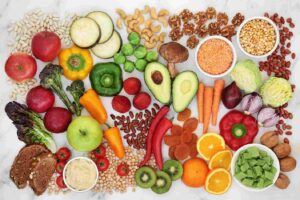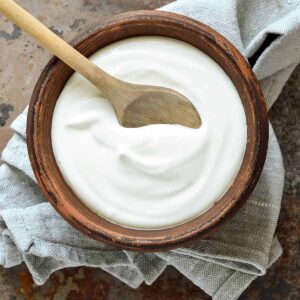There has been a growing interest in exploring natural remedies for managing Type 2 Diabetes, a condition that affects millions worldwide. While conventional medication remains a cornerstone in diabetes management, incorporating natural strategies can offer additional benefits. This blog aims to shed light on effective natural remedies for type 2 diabetes that can complement traditional diabetes treatments, offering a more integrated approach to managing this chronic condition.
Contents
Can Type 2 Diabetes Be Treated At Home?
 Absolutely, type 2 diabetes can be managed at home, although it’s important to note that any home-based approach should be in conjunction with medical supervision. Type 2 diabetes is a chronic condition that affects the way the body processes blood sugar (glucose). With the right lifestyle changes and home remedies, it’s possible to effectively manage and control blood sugar levels. This is crucial in reducing the risk of diabetes-related complications.
Absolutely, type 2 diabetes can be managed at home, although it’s important to note that any home-based approach should be in conjunction with medical supervision. Type 2 diabetes is a chronic condition that affects the way the body processes blood sugar (glucose). With the right lifestyle changes and home remedies, it’s possible to effectively manage and control blood sugar levels. This is crucial in reducing the risk of diabetes-related complications.
Managing type 2 diabetes at home involves a holistic approach. Additionally, certain natural supplements and herbs have been found to have a positive impact on blood sugar levels. However, these should be used cautiously and always under the guidance of a healthcare professional. Monitoring blood sugar levels regularly is also vital to ensure they remain within target ranges.
Effective Natural Remedies For Type 2 Diabetes
Managing Type 2 diabetes often requires a combination of lifestyle changes, and medical treatment, and sometimes, natural remedies can play a supportive role. Here are some of the best natural remedies for Type 2 diabetes management:
Physical Exercise
Regular physical activity is a powerful tool in managing Type 2 diabetes. Exercise increases insulin sensitivity, meaning your body requires less insulin to control blood sugar levels. Aerobic exercises, such as brisk walking, swimming, and cycling, can significantly lower blood sugar levels and improve cardiovascular health. Strength training exercises are equally important as they help build muscle mass, which burns more glucose. At least 150 minutes of moderate-intensity aerobic activity per week, spread over at least three days, with no more than two consecutive days without exercise.
Cinnamon
Cinnamon has been studied for its potential to improve blood sugar control in people with Type 2 diabetes. Compounds in cinnamon may act on cells by mimicking insulin, improving the uptake of glucose by cells, and reducing blood sugar levels. It also may help lower the glycemic index of a meal. However, it’s important to note that cinnamon should be used in moderation and shouldn’t be considered a substitute for diabetes medication. The best approach is to use it as a complementary treatment, adding it to foods like oatmeal, yogurt, or smoothies.
Fenugreek
This herb has been traditionally used in various cuisines and as a natural remedy for several ailments, including diabetes. Fenugreek seeds are high in soluble fiber. It helps lower blood sugar by slowing down carbohydrate digestion and absorption. Research has shown that consuming fenugreek in amounts of about 10-15 grams per day can help lower fasting blood sugar levels and improve overall glucose tolerance.
Bitter Melon
Bitter melon, also known as bitter gourd, has been used in traditional medicine as a remedy for diabetes. It contains three active substances with anti-diabetic properties, including charantin, which has been confirmed to have a blood glucose-lowering effect, vicine, and an insulin-like compound known as polypeptide-p. These substances work together to help reduce blood sugar levels by increasing glucose uptake and metabolism in the body’s tissues and suppressing key enzymes involved in carbohydrate digestion.
Apple Cider Vinegar
 Apple cider vinegar has gained attention for its potential benefits in blood sugar regulation. It contains acetic acid, which may influence the body’s insulin response and improve insulin sensitivity, particularly after high-carbohydrate meals. Studies suggest that consuming apple cider vinegar before bed can positively affect waking blood sugar levels in people with Type 2 diabetes. It’s typically recommended to dilute one to two tablespoons in a large glass of water to avoid digestive upset and to protect tooth enamel.
Apple cider vinegar has gained attention for its potential benefits in blood sugar regulation. It contains acetic acid, which may influence the body’s insulin response and improve insulin sensitivity, particularly after high-carbohydrate meals. Studies suggest that consuming apple cider vinegar before bed can positively affect waking blood sugar levels in people with Type 2 diabetes. It’s typically recommended to dilute one to two tablespoons in a large glass of water to avoid digestive upset and to protect tooth enamel.
Chromium
Chromium is a trace mineral that plays a role in carbohydrate and fat metabolism. It’s believed to enhance the action of insulin and is involved in the metabolism of glucose, making it a crucial element for blood sugar control. People with Type 2 diabetes are sometimes found to have lower levels of chromium. Supplementation with chromium can improve insulin sensitivity and glucose metabolism. Chromium is found in foods like broccoli, whole grains, and nuts, but it can also be taken as a supplement, under the guidance of a healthcare professional.
Magnesium
Magnesium is another essential mineral that’s often recommended for people with Type 2 diabetes. Low magnesium levels are common in individuals with diabetes, and research has shown that a magnesium deficiency may worsen insulin resistance. Foods rich in magnesium include green leafy vegetables, nuts, seeds, and whole grains. Magnesium supplements can also help. But it’s important to consult with a healthcare provider before starting any supplementation, as magnesium can interact with certain medications.
Omega-3 Fatty Acids
Omega-3 fatty acids, found in fish like salmon, mackerel, and sardines, as well as in flaxseeds and walnuts, are known for their anti-inflammatory properties and heart health benefits. For individuals with Type 2 diabetes, omega-3s can help improve insulin sensitivity and reduce the risk of heart disease. This is higher in people with diabetes. They may also help lower triglyceride levels, which are often high in diabetes.
Stress Management Techniques
It is a crucial but often overlooked aspect of Type 2 diabetes management. Stress can increase blood sugar levels by triggering the release of stress hormones like cortisol and adrenaline. Techniques such as yoga, meditation, deep breathing, and tai chi can help reduce stress. Regular practice of these activities can lead to improved insulin sensitivity and better overall blood sugar control.
Adequate Sleep
Sleep plays a significant role in glucose metabolism and insulin sensitivity. Poor sleep quality or insufficient sleep can disrupt hormonal balance, leading to increased appetite, higher blood sugar levels, and a decreased ability to regulate glucose. Adults should aim for 7-9 hours of quality sleep per night. Good sleep hygiene practices, such as maintaining a regular sleep schedule, creating a comfortable sleep environment, and avoiding caffeine and electronics before bedtime, can significantly improve sleep quality.
What Foods Fight Diabetes Type 2?
 Managing Type 2 diabetes effectively often involves making dietary changes to help control blood sugar levels and improve insulin sensitivity. Certain foods are particularly beneficial in this regard. Here’s a list of foods that can help fight Type 2 diabetes:
Managing Type 2 diabetes effectively often involves making dietary changes to help control blood sugar levels and improve insulin sensitivity. Certain foods are particularly beneficial in this regard. Here’s a list of foods that can help fight Type 2 diabetes:
Leafy Greens
Vegetables like spinach, kale, and collards are low in calories and carbohydrates, making them ideal for diabetes management. They are also rich in vitamins and minerals, including vitamin C, which has been shown to help manage diabetes.
Whole Grains
Whole grains like brown rice, quinoa, oatmeal, barley, whole-grain bread, and pasta have a lower glycemic index compared to refined grains. They help in regulating blood sugar levels because they are rich in fiber, which slows the absorption of sugar into the bloodstream.
Fatty Fish
Fish such as salmon, mackerel, sardines, and herring are rich in omega-3 fatty acids. These are beneficial for heart health. People with diabetes are at an increased risk of heart disease, making omega-3s an important part of their diet.
Beans and Legumes
Beans, lentils, and other legumes are excellent sources of plant-based protein and are high in fiber. They can help regulate blood sugar levels and are also beneficial for heart health.
Nuts and Seeds
Nuts and seeds are good sources of fiber, protein, and healthy fats. They can help stabilize blood sugar levels. Almonds, walnuts, flaxseeds, and chia seeds are particularly beneficial.
Berries
Berries like blueberries, strawberries, and raspberries are packed with antioxidants, vitamins, and fiber. They have a lower glycemic index compared to other fruits, making them a great choice for people with diabetes.
Citrus Fruits
Oranges, lemons, and grapefruits are rich in vitamin C, and fiber, and are also low in the glycemic index. They can be a healthy addition to a diabetes diet.
Sweet Potatoes
Unlike regular potatoes, sweet potatoes have a lower glycemic index and are high in fiber, which helps in managing blood sugar levels.
Yogurt
 Particularly Greek yogurt, which is high in protein and low in carbohydrates and sugar. Some studies suggest that yogurt may lead to better blood sugar control and reduced heart disease risk.
Particularly Greek yogurt, which is high in protein and low in carbohydrates and sugar. Some studies suggest that yogurt may lead to better blood sugar control and reduced heart disease risk.
It’s important to balance these foods with a well-rounded diet and to consider portion sizes to manage blood sugar effectively. Additionally, it’s advisable to consult with a healthcare provider or a dietitian to create a meal plan that’s tailored to individual health needs and goals in managing Type 2 diabetes.
Conclusion
In conclusion, natural remedies for Type 2 diabetes are essential for a healthy approach. Adopting a balanced diet rich in low-glycemic foods, engaging in regular physical activity, and incorporating natural supplements like cinnamon, fenugreek, and bitter melon can support blood sugar control. Additionally, incorporating apple cider vinegar, chromium, and magnesium into your diet, along with omega-3 fatty acids, can provide further benefits.
While these strategies can be effective in complementing your diabetes management plan, it’s important to always consult with a healthcare provider before making any significant changes to your routine. Especially if you’re on diabetes medication. Do you want to get rid of diabetes? Join our online diabetes treatment program and reverse Diabetes naturally through lifestyle changes such as a Personalized Diet plan, Exercise, Yoga, dieticians, and health coaches.

